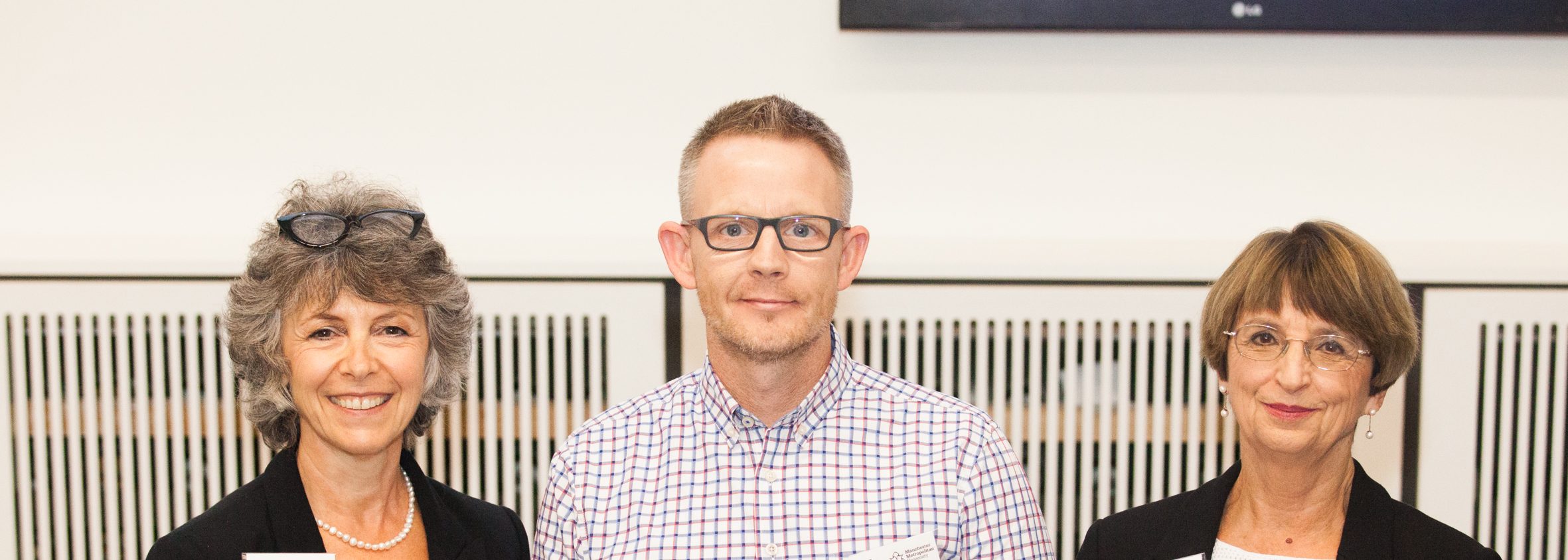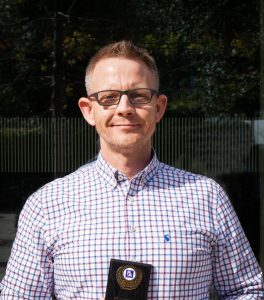
Stephen Rogers teaches Functional Skills English teacher at high-security prison HMP Whitemoor. This month, he will receive the first Outstanding Prison Educator award from the Worshipful Company of Educators, having been named the ‘winner of winners’ out of last years’ Prisoner Learning Alliance award recipients. Here he tells his story.
I served in the army for 15 years before becoming a teacher. I started out teaching in a college, but after a few years in the role I was disillusioned. I felt students were only there because they had been sent over the road from the Academy – attendance was poor and there wasn’t much structure. Perhaps it sounds naïve, but my main motivation for applying to work in a prison was wanting to help people. I knew I’d be where I was needed, with people who had hit rock bottom and were at the mercy of the system.
If I can look a learner in the eye – someone who’s doing a 30-year sentence – and smile, and listen – that small gesture makes a huge difference.

It was the guys I teach who nominated me for a PLA award. Some of them had mentioned they were planning to put my name forward but I thought, ‘I’ll believe it when I see it’. In the end 15 of them wrote in. That was a very good feeling. It meant a lot.
I was absolutely flabbergasted to be named overall Educator of Year. The extra award was announced as a surprise. I was sitting there thinking ‘That’s nice, whoever gets this deserves it.’ When they said my name I felt the blood drain from my face. It was totally unexpected after hearing about the other PLA winners – learners, mentors, librarians – people who are doing staggering work in really difficult places. I was in a state of shock for quite a while.
Winning the award has definitely made a difference. I’m turning 50 this year, and it’s given me a spring in my step. I’ve taken it as a message to carry on building positive relationships. Even if it’s just a five-minute chat to ask, ‘Are you thinking of returning to education? What are you interested in?’, if I can look a learner in the eye – someone who’s doing a 30-year sentence – and smile, and listen – that small gesture makes a huge difference.
I make a point of visiting learners while they’re in segregation… It’s saying: even if I’m talking through a flap in the door, I’m here
As a teacher, I’ve definitely realised that the most important thing is positive communication. In this profession, it sometimes astonishes me how bad at communicating we are – not being clear; negative body language. If you’re a poor communicator the class will know in seconds, whether you’re teaching in a primary school or inside a prison.
I make a point of visiting learners while they’re in segregation. The reason for that is to show consistency. It’s saying: even if I’m talking through a flap in the door, I’m here and I’m bringing you papers and work and a pen, and I’ll see you next on this day. This consistency, it has a massive impact on behaviour when they’re down there – it makes things easier for the officers as well.
There have been times in the past when the pay check has been the main motivator. But the last three or four years have been different. What gets me to work in the morning is just being with the guys and having a good session. There are lots of times when someone has started with a lack of confidence in themselves and their abilities, there might have been behavioural issues, but through consistency and good communication and trust they achieve more. Then they’ve got the learning bug and you’ve got them.
I saw big men broken down… crying on my shoulder saying they missed their children
Not every day is a good day. It does upset you if you have disruptive learners. I am in a high-security prison – it’s an oppressive environment where you sometimes feel you can’t do anything right for doing wrong. It’s also quite tough for resources – we can’t have tablets, we hardly have any ICT. In Ofsted reports we get comments like ‘You’ve got one computer, you have no internet access’, but there’s nothing we can do about it. Staffing levels also have a massive impact on us. We tell the learners – we’re here every day, but there aren’t enough officers to man the department, so we can’t teach them.
One of the highlights of my work has been running the Fathers Inside programme. It’s a nine-week course, all based on drama. We looked at parenting different age groups: choices; responsibility; homework; listening. There’s an emphasis on ‘good dad’ not a ‘perfect dad’. I saw big men broken down – saying ‘Steve, can I have a quiet word’, and then crying on my shoulder saying they missed their children. As a father myself I learnt every step of the way. It made me 100 times more aware of how I parent, how a small child views a big adult.
When you think of the bigger picture, you often feel powerless. But I love teaching. I enjoy learning from the men too – not how to cook food in a kettle, but about where they’re from, their religion, their lives. When you get engagement and connection, I couldn’t think of a better feeling.
The PLA is a network of over 100 organisations and individuals committed to prison education. Find out how to join here.